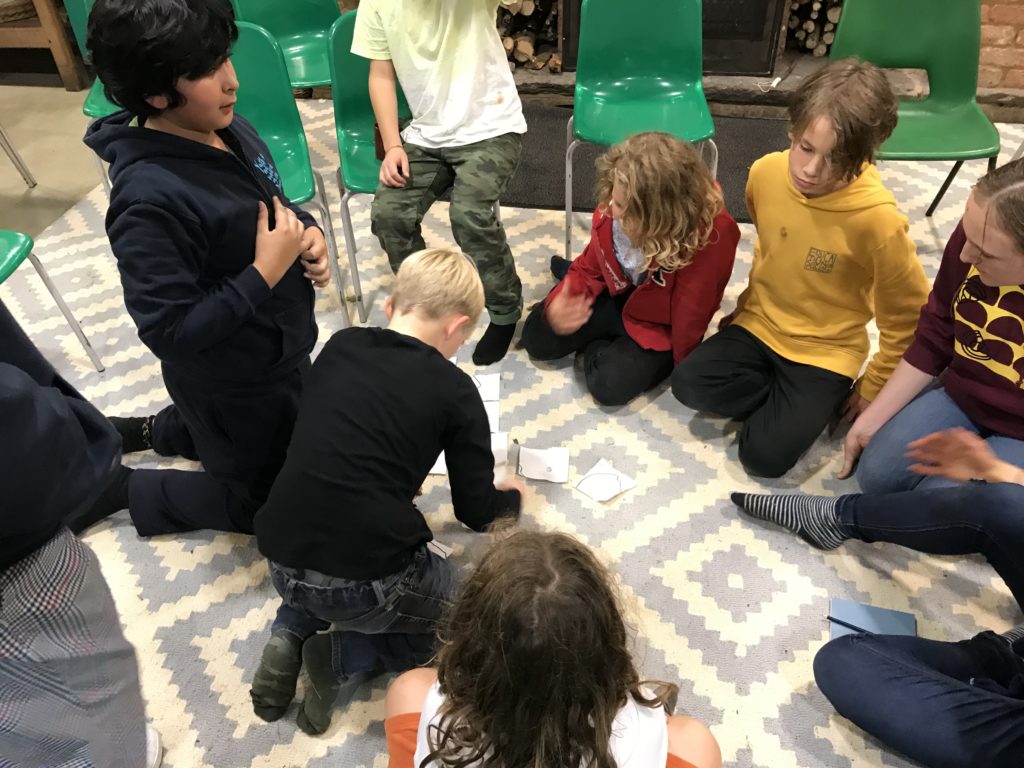Beforehand
Find some pictures that relate to the environment, these could be pictures of people on a march to fight against climate change or pictures of the effects of climate change (e.g. a flood, a tsunami, climate refugees).
What to do
- Cut each picture into a number of pieces, mix them up and divide them between the envelopes. You will need one envelope and at least one picture per team.
- Divide the young people into three or more teams, with between three and five people on a team (pairs can work too if numbers are small).
- Explain to participants that their challenge is to complete one whole puzzle and present it to you.
- Teams to find a space. They will need to decide which puzzle to complete (by looking through the pieces they have in their envelope).
- Outline the rules for the game, you could write them up to help remind the players:
- Only one person can visit another team at a time to negotiate.
- When visited by another team only one person may engage in conversation.
- You may visit and complete a negotiation and therefore swap puzzle pieces, or your negotiation may fail and you come back empty handed.
- The same person may not visit another team twice in a row.
- You can only visit other teams when the leader announces that negotiations are open.
- Now they can start to visit and negotiate the trade and exchange of puzzle pieces with other teams.
- Declare round one of negotiations open for 3 minutes. At the end of the three minutes everyone must return to their team, even if they have nothing.
- In round two negotiations last for 2 minutes and 45 seconds.
- Keep reducing the time for each successive round – tell players ‘the temperature is rising and time is running out’.

Reflect and discuss
Bring everyone together and ask them to discuss:
- Did you manage to complete your puzzle? What was your strategy, and was it effective?
- How did you second guess the motivations of other teams? Did you try and work with them or against them?
- How did the discussions and negotiations change as the available time got shorter?
- How do you think this relates to national negotiations on achieving a whole world outcome?
- Did anyone tell you that you had to complete your puzzle first? Or just that you had to complete it? Did anyone say it was a competition?
- Would you have gone about it differently if you were aiming for every team to finish their puzzles?
- Does it tell us anything about why negotiations fail, or how can we give them the best chance of succeeding?
- Who had the most power in the negotiations? The leader could make up the rules – does this make them more like activists, governments or big business in the real world?
Take it further
For older groups you can introduce new rules to make the challenge tougher, e.g. negotiations are cut short because the pound has weakened, or sue the team who is closest to completing their puzzle for damage to your “Puzzle Must Never Be Completed” trademark.
If your group enjoyed this activity you could try Who’s Fault is it? to take on a role and think about how a range of climate issues would affect you and your group.

